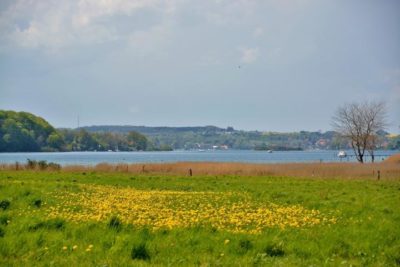Danish scientists say that a sheltered bay in southern Denmark may hold the world record for carbon storage per meter because of its abundant seagrass meadows, which sequester carbon extremely efficiently.
Reporting in the journal Biogeosciences, the scientists said that CO2 absorption by eelgrass in Thurøbund Bay has resulted in the bay storing 27,000 grams of carbon per square meter, more than twice as much as other efficient carbon-storing ecosystems worldwide. A key reason for Thurøbund’s impressive carbon storage is that once seagrasses die in its sheltered waters, they are buried in the bay’s sediments, locking up the carbon. By contrast, many of the nine other Baltic Sea sites studied by the scientists were in exposed coastal areas, which means that dead grasses are carried out to sea and often not buried in sediment. The importance of “blue carbon” storage in coastal waters is gaining increasing attention, with international programs now paying local residents to replant sea grasses, mangroves, and other shallow-water plants.



